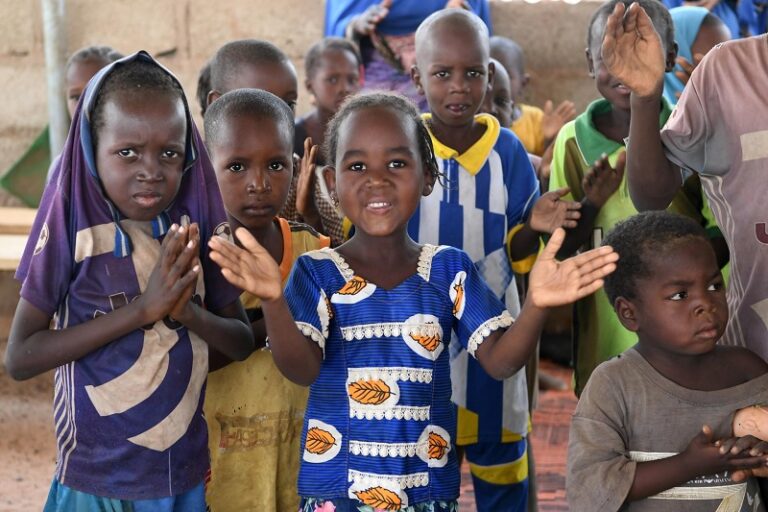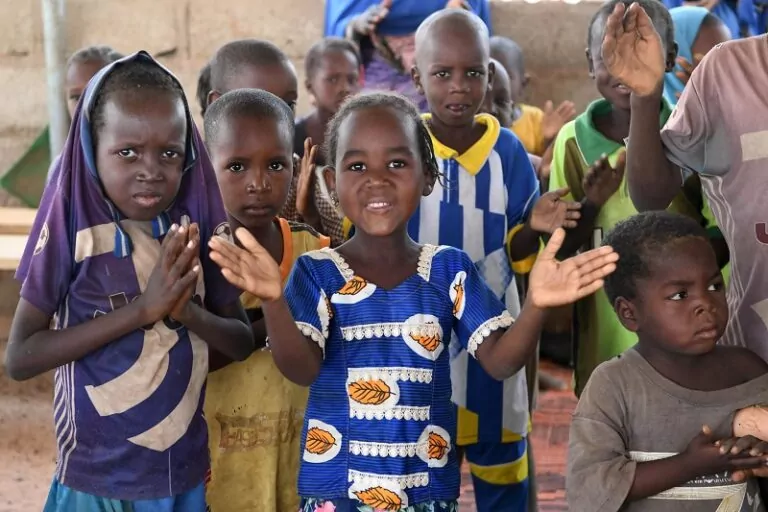

burkina faso crisis rising violence, displacement, and declining humanitarian aid
According to data provided by the government, the number of people who have been forced to leave their homes as a result of violence in Burkina Faso has increased by more than 2,000% since 2019. This places Burkina Faso among the countries with one of the most rapidly expanding populations of people who have been displaced within their own countries.
More than 2 million people, the bulk of whom are women and children, are considered to be internally displaced in West Africa, according to figures that were made public just the previous month. This is creating a significant humanitarian crisis. As a result of the fighting, many people have been forced to leave their homes and farms and relocate to crowded urban areas or makeshift camps instead.
Both humanitarian aid organizations and the government are working feverishly to accommodate the ever-increasing demand for their services. One in every four individuals requires assistance, and tens of thousands are at risk of famine on a catastrophic scale. However, the United Nations reports that not even half of the $800 million budget that was requested by humanitarian organizations during the previous year has been funded.
“The range of potential repercussions (for individuals) is broad but dismal in every respect. According to Alexandra Lamarche, a senior researcher at the refugee advocacy group Refugees International, “many people are at risk of dying, and they are dying because they have not been able to access food and health services, because they weren’t properly protected, and because the humanitarian aid and government response weren’t enough.”
The violence has torn apart a once-calm country, ultimately leading to two coups in the past year. However, terrorist attacks have continued and even increased since Captain Ibrahim Traore took power in September, despite the promises made by military authorities that they would reduce insecurity.
According to observers of conflicts, the government has control over fewer than fifty percent of the country, primarily in rural areas. According to Rida Lyammouri, a senior fellow at the Policy Center for the New South, a think tank based in Morocco, Al-Qaeda and Islamic State-affiliated militants control or threaten huge territories.
According to what he claimed, “The state security forces do not have the resources (human and material) to fight the two groups on all fronts.” The approach of the jihadists to blockade cities, which restricts the movement of people and prevents commodities from entering, has made the situation of people being forced to relocate much worse. According to the estimates of several humanitarian agencies, there are around 800,000 people trapped inside more than 20 cities.
“The situation is extremely difficult. People don’t have food, and children don’t have school,” said Bibata Sangli, 53, who fled the eastern city of Pama in the country in January 2022, just before it was besieged. She still has family members who are unable to travel. A community leader who had a meeting with Jafar Dicko, the most prominent jihadist in Burkina Faso, the previous year reported that Dicko’s group blocks communities that do not embrace its laws, such as the necessity for women to cover their faces and the prohibition on drinking alcohol.
The United Nations began employing Chinook heavy-lift helicopters in January in order to carry supplies to regions that are inaccessible by road. This method is very expensive. Because there is only one Chinook now instead of the previous three, it is now significantly more difficult to swiftly access huge groups of people. A decrease in the capacity of relief organizations to carry out their work is occurring concurrently with the deterioration of the humanitarian situation.
According to data that has not been made public, since the military of Burkina Faso gained control of the government in January 2022, the number of incidences in which security personnel have committed acts of violence against humanitarian groups has climbed from only one in 2021 to 11 in the most recent year. The humanitarian organizations with which the Associated Press was able to speak. Workers were injured, arrested, and detained as a result of the incidents that occurred.
The Gujarat Titans (GT) team confirmed Thursday that fast bowler Kagiso Rabada is taking an early IPL 2025 exit to…
The International Finance Corporation gives Raxio Group $100 million to accelerate their data center building efforts throughout Sub-Saharan African regions.…
The Oklahoma City Thunder secured their tenth consecutive victory by beating the Chicago Bulls 145-117. This victory raised their season…
The Board of Control for Cricket in India introduced a detailed list of cricket matches that will take place at…
Rob Walter Resigns his Position as coach for the Proteas men's team for white-ball games because personal problems needed attention.…
Starting April 2, South African drivers will get lower costs when filling their tanks as fuel prices decrease for all…
This website uses cookies.